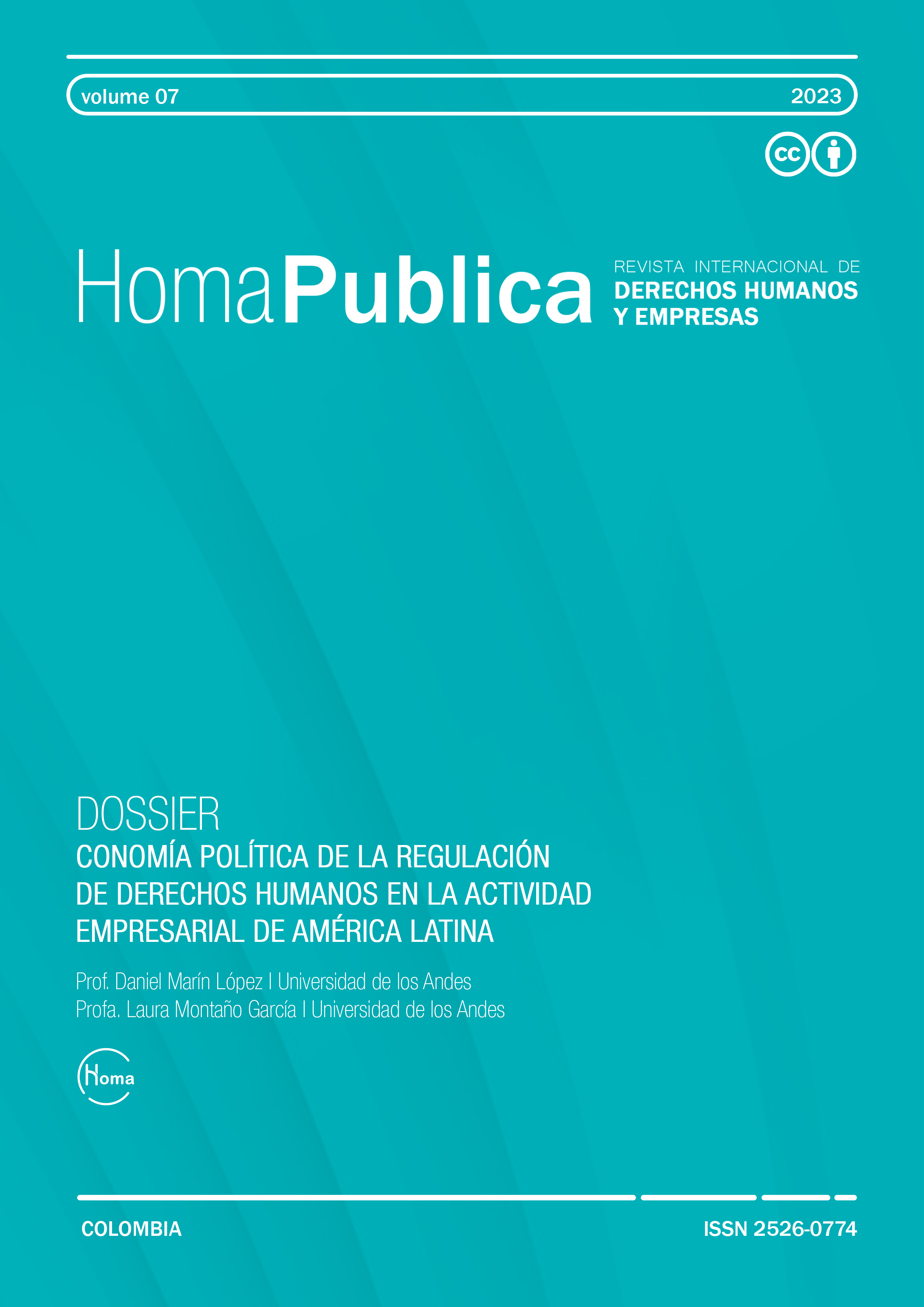THE TECHNOLOGY REVOLUTION AND ITS IMPACT ON CONSTITUTIONAL HERMENEUTICS: A CASE STUDY – STF V. TELEGRAM, LIBERTY AND TRUTH
Published 2023-12-19
Keywords
- Fundamental rights,
- Freedom of Information,
- Misinformation,
- Censorship,
- STF
- Technology,
- Technological Revolution,
- Interpretation,
- Hermeneutics ...More
How to Cite
Copyright (c) 2023 Homa Publica - Revista Internacional de Derechos Humanos y Empresas

This work is licensed under a Creative Commons Attribution 4.0 International License.
Abstract
The object of analysis in this paper involves the Fundamental Right to freedom of information and its counterpoint in censorship in light of a monocratic decision by a minister of the Supremo Tribunal Federal (STF) in the course of Inquiry 4781/DF. TELEGRAM, a messaging app created in 2013, sent a statement to several users warning them about the disadvantages of legislative proposal 2630/2020 (fake news), and was ordered by the court not only to remove the message from the air, but also to replace it with another, dictated in the terms of the decision, under penalty of various sanctions, including suspension of its activities. The problem of the work is the impact that new technologies can have on maintaining or changing the paradigm applied by the STF to interpret freedom of expression and communication. The theoretical model is delimited according to the challenge to the interpretation of Fundamental Rights generated in the era of connected information that characterizes the 4th Technological Revolution. The convergence of the philosophy of technology with Fundamental Rights will serve as a framework for the constitutional hermeneutic method, through which the limits of the powers will have to be clarified, all of which are subject to the sublimation of the 1988 Constitution. The confirmed hypothesis is the change in the hermeneutic paradigm adopted by the STF in detriment to Fundamental Rights and to the instruments for combating disinformation recognized by the Federal Constitution.
Downloads
References
- Aristotle (2014). On “Techné” and “Epistémé”. In Philosophy of Technology – The Technological Condition an Anthology. UK: Backwell. pp19-24.
- Ávila, H. (2019). Constituição, liberdade e interpretação. São Paulo: Malheiros. Brasil. Assembleia Nacional Constituinte (1988). Constituição Federal.
- https://www.planalto.gov.br/ccivil_03/constituicao/constituicao.htm
- Brasil. Câmara dos Deputados (2020). Projeto de Lei nº 2630. Institui a Lei Brasileira de Liberdade, Responsabilidade e Transparência na Internet. https://www.camara.leg.br/propostas-legislativas/2256735
- Brasil. Supremo Tribunal Federal (2019). Inquérito 4781-DF. Relator: Ministro Alexandre de Moraes. https://portal.stf.jus.br/processos/detalhe.asp?incidente=5651823
- Feenberg, A. (2014) Democratic Rationalization: Technology, Power, and Freedom. In Philosophy of Technology – The Technological Condition an Anthology. UK: Backwell. pp. 706-719.
- Ferraz Júnior, T. S. (2014). O Direito, entre o futuro e o passado. São Paulo: Noeses. Häberle, P. (2008). Os problemas da verdade no Estado Constitucional. Porto Alegre:
- Sergio Antonio Fabris, 2008.
- Heidegger, M. (2014). The Question Concerning Technology. In Philosophy of Technology – The Technological Condition an Anthology. UK: Backwell. pp. 305-317.
- Ihde, D. (1990). Technology and the Lifeworld – From Garden to Earth. Indiana: University Press
- Kuhn, T. S. (2018). A Estrutura das Revoluções Científicas. São Paulo: Editora Perspectiva. Plato (2014). On Dialectic and “Techné”. In Philosophy of Technology – The Technological
- Condition an Anthology. UK: Backwell. pp10-18.
- Schwab, K. (2021). A Quarta Revolução Industrial. São Paulo: Edipro.
- Silva, J. A. da (2006). Comentário contextual à Constituição. São Paulo: Malheiros. Souza Junior, C. S. (2002). Consenso e Democracia Constitucional. Porto Alegre: Sagra
- Luzzatto.
- Streck, L. L. (2020). Dicionário de Hermenêutica. Belo Horizonte: Casa do Direito.
- Streck, L. L. (2017). Verdade e consenso: Constituição, Hermenêutica e Teorias discursivas.
- São Paulo: Saraiva.
- Tavares, A. R. (2006). Direito Constitucional Brasileiro concretizado: hard cases e soluções juridicamente adequadas. São Paulo: Método.
- Vieira Pinto, A. (2013). O conceito de tecnologia. Rio de Janeiro: Contraponto.

